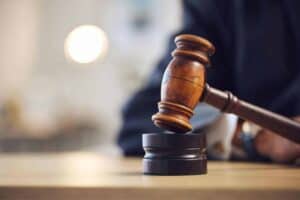'When you see corruption happening stand up against it and name names. You will be surprised how people will come forward and support you,' Merkel said.

German Chancellor, Engela Merkel has asked the youth in South Africa to stand up and be whistleblowers against corruption where they see it happening.
Responding to questions during a conversation with students at the University of Pretoria on Thursday evening, Merkel said that they must “name names” of those involved in acts of graft if the scourge is to be ended.
This after some students raised concern that corruption had permeated every facet of public institutions in South Africa and asked the German leader what should be done in her view.
“When you see corruption happening stand up against it and name names. You will be surprised to see how people will come forward and support you,” Merkel said.
She added that corruption was not unique to South Africa but was something that was troubling the entire world.
Merkel was on a visit to South Africa to strengthen ties with Pretoria. She earlier held discussions with President Cyril Ramaphosa and signed bilateral agreements at ministerial level.
Germany and South Africa had historic trade and political relations that escalated post-1994. At least 600 German firms were invested in the country with a strong emphasis in the motor sector which provided a massive number of jobs to South Africans.
She said they understood that South Africa emerged from difficult times hence it faced a multiplicity of challenges including high crime levels. “South Africa is a very special case because of the apartheid past. Because of the crimes committed against blacks, many victims of the system might have adopted an attitude of ‘because they took from us we must take from them’,” she said.
This was to be expected but that’s not the way to go because it would result in the spiralling of crime and cause instability.
Merkel urged the youth, as future leaders, to adopt a different and new attitude towards fighting crime and corruption. They must expose instances of corruption and avoid revenge for the past.
“As young people you can say “we don’t want this and adopt a different approach,” she said.
Merkel praised the introduction of the National Health Insurance (NHI) in the country’s healthcare system saying this would give everybody access to quality care regardless of their socio-economic circumstances. “This is a health system where nobody will be excluded. However, you still have a long way to go to provide more facilities for your new system,” she said.
But Merkel believed the NHI would create more jobs as more doctors and other healthcare workers would need to be recruited to make the NHI work.
Responding to a specific and strongly pointed question from one of the students, Merkel defended her country’s relations with Israel. She said Germany supported the two-state solution where both Israel and Palestine existed as sovereign entities.
But her country was opposed to Israeli settlements on the Paletinian areas and Germany had been criticising Israel for that.
She stressed that Germany was obliged to help Israel recover due to the atrocities that it perpetrated against the Jews in the past including the concerted efforts to exterminate the Jews under Hitler.
“At the same time we do not believe in the boycott (of Israel), we believe that Israel has a right of existence in that region. In the similar way, we have to support Palestine to the best of our ability as well,” she said.
South Africa and Germany will cooperate to fight climate change and on matters of energy creation including renewables. As South Africa’s electricity generation heavily relied on coal produced mainly from aging plants, this country needed to make plans around solar and wind energy and increase such infrastructure.
Although windmills were huge, noisy and got idle on non-windy days, they were good alternative energy generation sources. Similarly, solar energy was important and easy despite its tendency to mulfunction during bad weather conditions.
The country needed to save energy “because how you spend energy is important, like in a water crisis, you can induce people to save water”.
“It’s transformation here in South Africa. Therefore a lot of money has to be spent on this transformation,” Merkel said.
On jobs, she said many German citizens tended to opt for self-employment and running small enterprises to generate incomes.
Some avoided studying certain courses such as nursing in favour of high-end professions. As a result there were many opprtunities for foreigners to work in Germany, particularly in nursing and home care. “Take care of other people, do something with your hands,” she said.
Merkel said as inequality particularly in gender remained part of body politics in society and boardrooms of private companies, women must continue and intensify their fight against it.
Inequality and poverty remained in society because the riches amassed by a few wealthy people had not done anything to help many and “we must fight against this”.
Merkel advise that people must stop judging others on the basis of skin colour or country of origin. She said stereotyping had increase in the world.
She condemned the ongoing stereotyping and discrimination against Chinese people as a result of the current outbreak of the coronavirus in China.
“I think, it’s important to look at other people as human beings like you. It is wrong to put labels on somebody because now all of a sudden people who come from China and Asia are pre-judged because of the virus in China,” Merkel said.
For more news your way, download The Citizen’s app for iOS and Android.






